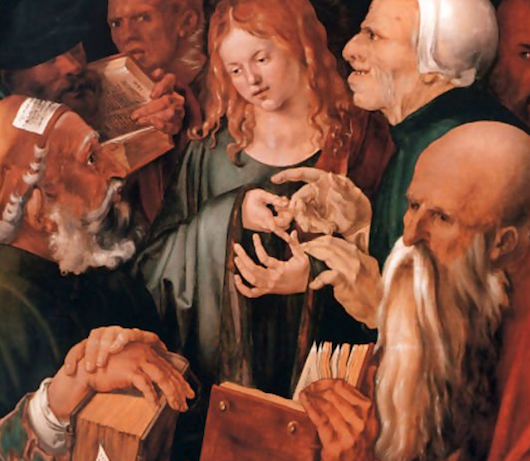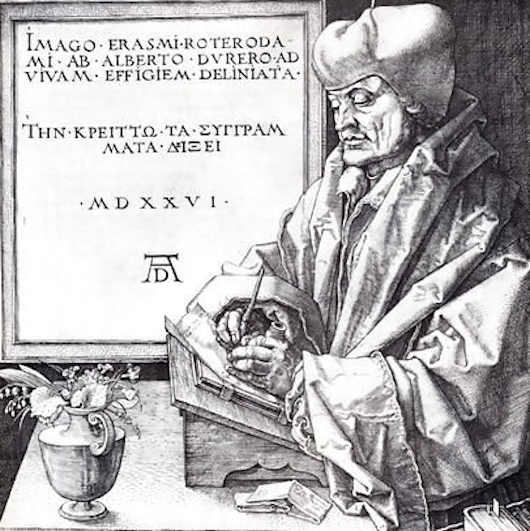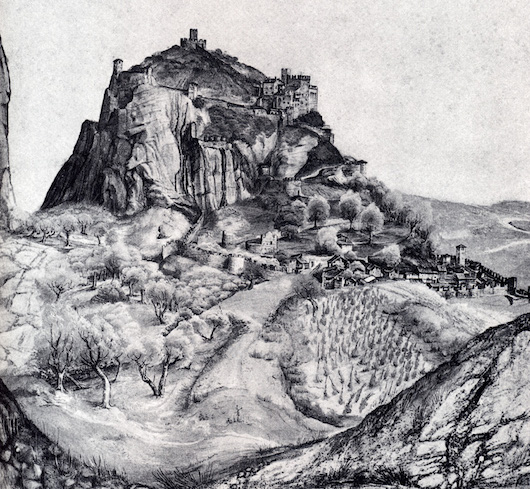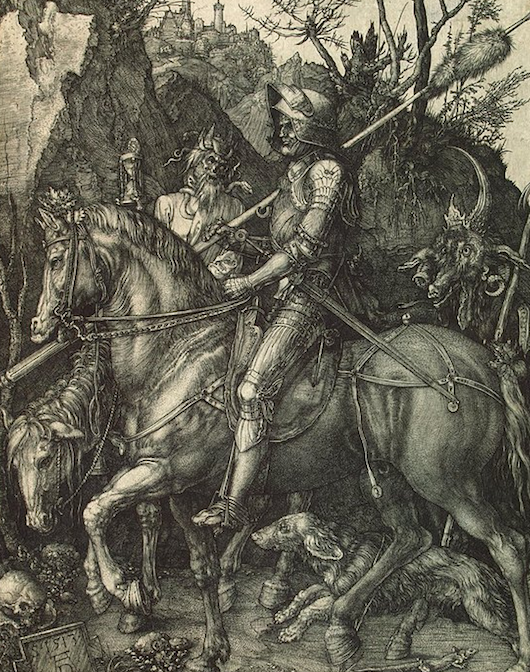 ART
ART In Which We Ask If He Moves His Mouth
 Friday, June 22, 2018 at 2:26AM
Friday, June 22, 2018 at 2:26AM 
I Wrote This By Hand
by LISA GETTY-FRANCIS
Monday
He is riding the 2 train and getting off four stops before mine. He has that glazed over look. Something has gone terribly wrong.
Tuesday
I think of the right book to be reading, the one that not only piques his interest, but piques his interest in me. My roommate Joann suggests a novelization of the Jim Carrey movie The Cable Guy. My mom suggests a book about training puppies written by a bunch of a monks. "He'll know, on some level, that it is about him," she says without a trace of irony.
Wednesday
Irony is the only thing never in short supply. He is reading now. Well, he is playing a game on his phone also. The object of the game, I can reveal to you all now, is to put a series of frames in sequential order.
When he becomes frustrated or unable to put them in the right order, he pulls out a book. It is a rather tawdry biography of Johnny Carson, who never trusted anyone.
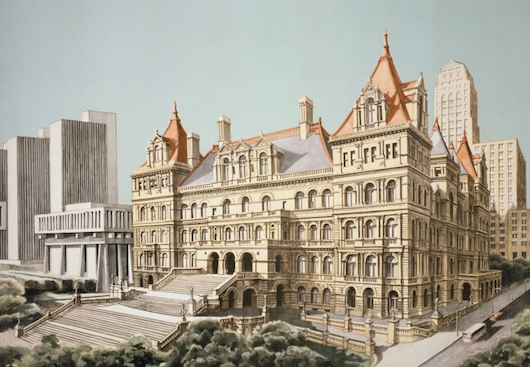
Thursday
I decide on a book that will suggest a variety of nuances about myself. You don't know me, but I am like a parade: you can have brief snippets of fun, but you can also be trampled.
Friday
I notice that when he is reading, his mouth forms some but not all of the words. My roommate Joann says that he is probably learning disabled. My mom says a lot of people do that when they read, which is code for her saying she has been known to mouth a word here or there.
Saturday
I went to the Met. All the paintings seemed woefully inadequate. Why didn't they talk, or dance? Remaining still is only useful in death.
Monday
OK. I have heard his voice. It sounds like when someone who is a bit too much up his own ass says the word 'research.' He talked to a latino girl who admired his shoes (they are gorgeous, they should be in a museum). He told her that they do not feel as good as they look, and turned back to his new book: a paperback copy of Rosemary's Baby. I am ashamed to say I was a little turned on by that.
Tuesday
Some ducks climbed up on an old woman's leg in the park. She was feeding them too much. When they reached for her hand, she said she had to go.
Wednesday
My roommate invited me to the Hamptons, but I can't/don't want to go. The faces of the people there remind me too much of scars.
Thursday
He wore his workout clothes around five, which suggests that he changed into them at the office. He is quite fit, but his arrangement suggests an almost accidental theme. He took out a gym bag and changed his shoes. I would be lying if I said they looked great, but the last time I looked at a pair of feet and felt pleased was in the shower.
Friday
Look-alikes:
Me, Audrey Hepburn's mediocre sister
My mom, Katie Couric
Him, An incredibly handsome velociraptor
Joann, a female birthed from Channing Tatum's embryo
The possibility of being someone else is the rabbit dogs chase around the Aqueduct.

Monday
What a weekend. I did not see him once, and I rode the subway back and forth too much. It used to be that the very first car was always the emptiest, but people caught on, and now it is as crowded as the others. Then a train crashed in Valhalla, and it was only those in the first car who perished in the flames. It goes back and forth like that.
Tuesday
He is back! On an impulse I sat down next to him. He looked up at me and smiled! He was reading The Interestings! (What crap!) I searched for what I would say, and it did not take me very long to come up with something that I believe we can all agree is compelling on the merits: "I'm Lisa. You are? Wait, don't tell me. I don't want to know."
 Wednesday
Wednesday
Joann made me go to the Guggenheim. It is like being inside an egg, which leads to us spending most of our time there reading the wikipedia article about eggs. We need something to distract us because the Kandinsky exhibit is so bad.
Joann thinks it is best not to overthink a first date. "A great first date sets up too many unrealistic expectations," she says. She also believes you should always drink on a first date, as a sort of litmus test to find out if he is an alcoholic. Her last boyfriend drank too much, and his skin smelled like Crown Royal Apple.
Thursday
The date is on Saturday, so I just take the bus until then. Buses are full of divorced dads with their kids and seniors wrapping their wrists in gauze. Someone had the not-so-bright idea to put fabric on the seats instead of plastic, and it is all worn down and discolored, like hair dyed too many colors. When someone (a male) first asked me to describe myself, I found I could not do it. Since then I have put some real time into knowing what to say in response to that question. This makes it seem like I know who I am.
Friday
Joann and I cleaned the apartment today. We found three twenty dollar bills in the sofa cushion and paused the mopping for a real meal. She thinks they belonged to her ex-boyfriend. "Don't date a guy who is always losing things," she said. "It's a waste of time." I almost tell her that I lost a pair of earrings she gave me last year, but I decide to wait for a better time. They are probably on the first car of a train somewhere.
Saturday
How did it go? How did it go? How did it go?
He was working in Rhode Island, he tells me. He says the explanation is going to sound weird, and I don a solemn countenance, preparing myself to say, "But that's not weird at all!" (In this restaurant, all the flames shine in candleholders shaped like golden retrievers.)
He (his name is Jeffrey) was in charge of all the lost and found in the entire state of Rhode Island. It was a job his uncle got him after he dropped out of law school, he says. I ask him what things people lost that were recovered.
"Oh anything," he says, and launches into a list that it feels like goes on for the better part of an hour. Honestly I mostly start touching him just to quiet the barrage, but also because I always wanted to.

"I saw you on the train a few weeks ago," I say.
"What made you notice me?"
"Oh, you were reading some trash."
Saturday
His apartment is more meticulously arranged than any museum. I used to like going to those places, the kinds of empty environments you could fill with your own thoughts and turn into a completely idiosyncratic experience. I think that possibility has vanished or is at least seriously diminished. (My youth!)
He applies a full layer of cocoa butter to his body before sleep.
Sunday
An arm and a leg.
Joann met someone, too. His hair is short but oddly covers his ears. She sent me a picture. I asked if he moves his mouth to form the words he is reading, and she says so far, no, but the only books in his apartment are by Jacques Pepin and Foucault.
Monday
In the last car, where you are the least likely to run into anyone you know, a chorus sings, "I Think We're Alone Now." The train breaks down at 96th.
Lisa Getty-Francis is a contributor to This Recording. This is her first appearance in these pages. She is a writer living in New York.
 lisa getty-francis
lisa getty-francis 





























